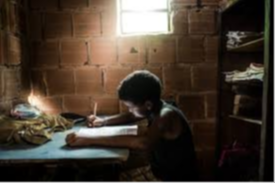
Photo: www.undp.org
By Roberto Morejón
In Latin America and the Caribbean, one of the most unequal regions in the world, economic and social conditions and violence have a negative impact on educational levels.
The pandemic has exacerbated an already poor situation in various learning indicators, with three out of four 15-year-old students lacking basic math skills and half of them unable to read.
These are the findings of the Program for International Student Assessment 2022, conducted by the Organization for Economic Cooperation and Development (OECD).
International organizations speak of an educational crisis on the subcontinent, with 75 percent of students performing below basic in math and 55 percent below basic in reading.
Even the World Bank itself, so tied to big business, has called for alleviating the learning crisis, which it admits is exacerbated by regional inequalities.
Of course, the impact of learning and lower education rates means that children and adolescents are less likely to participate in the political and social life of their countries as adults.
The picture becomes more complicated when the school environment and the places where students live are characterized by violence.
A few weeks ago, experts met in Bogotá, the capital of Colombia, to examine the forms of violence affecting education in the Americas and the Caribbean.
They agreed on an action plan to combat this scourge, strengthen cooperation between countries, and develop policies that promote peace and equity.
In addition to urban and rural violence, armed conflicts have increased dramatically, causing fear among children, adolescents and parents, school delays and dropout rates, and forced displacement.
Faced with the adversities of learning and the violence that hinders education, governments in Latin America and the Caribbean need to work together across political and ideological divides.
Effective investments are needed to benefit students and teachers, to improve the quality of the latter, and to mitigate the effects of socioeconomic inequalities among students.
Whatever is implemented is fundamental for human beings to create tools for the benefit of individuals, families and their countries.

